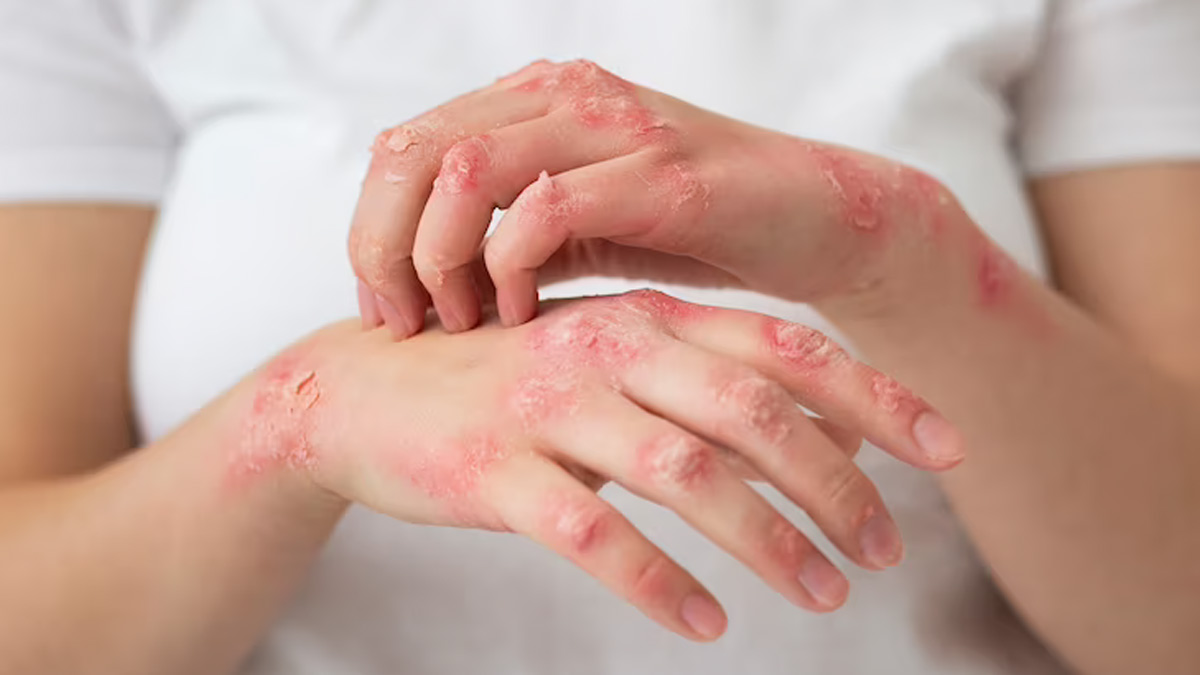
Herpes is a word derived from a Greek word which means to “creep or crawl”. It is a viral infection that has affected billions of people worldwide.
According to the World Health Organisation, around half a billion people have genital herpes worldwide, and several billion are suffering from oral herpes.
Table of Content:-
“Herpes is a viral infection that can cause recurrent outbreaks of painful blisters or sores on the mouth, genitals, or other body areas”, says Dr. Manoj Vithlani, MBBS & MD, Speciality: Internal medicine, HCG Hospitals, Ahmedabad.
Causes Of Herpes Simplex Virus
According to Dr. Vithlani, herpes is caused by the herpes simplex virus (HSV) and is divided into two types: herpes simplex virus type 1 (HSV-1) and herpes simplex virus type 2 (HSV-2). While both types of herpes can affect the mouth and genital areas, HSV-1 is typically associated with cold sores around the mouth, while HSV-2 is primarily responsible for genital herpes.
Herpes can be sexually transmitted infection (STI), which means that it is passed from person to person through sexual contact. Herpes can also be transmitted through non-sexual contact, such as:
- Kissing someone who has a cold sore
- Sharing utensils or towels with someone who is sick.

Symptoms Of Herpes
Herpes symptoms differ from person to person and also depend on the type of herpes virus with which a person is afflicted.
HSV-1 typically causes cold sores, which are small, fluid-filled blisters that appear on or around the lips. These blisters are uncomfortable and might take up to two weeks to heal.
Read: World Asthma Day 2023: Pulmonologist Explains Impact Of Air Pollution On Asthma
HSV-2, on the other hand, typically causes genital herpes, which is characterised by small, painful blisters that appear on or around the genital area.
Herpes virus can also have a significant impact on a person's emotional and psychological well-being. It is important to remember that herpes is a common infection and that having herpes does not mean that a person is promiscuous or has engaged in risky behaviour.
Treatment
There is currently no cure for herpes, but there are treatments available that can help to manage symptoms and reduce the frequency and severity of outbreaks. Antiviral medications with the recommendation of a doctor can help shorten the duration of outbreaks and can also be used to prevent outbreaks from occurring in the first place.
Dr. Vithlani recommends a warm bath for 20 minutes for mild cases of herpes. And people who have oral herpes due to sunlight, avoiding sun exposure and wearing sunscreen can lower the risk. Also, consuming cold drinks or popsicles might provide relief.
Can Herpes Recur
When a person is infected with herpes, the virus stays in their body for life and can trigger outbreaks. As per Dr Vithlani, herpes is a chronic infection where the virus remains latent in the body and can reactivate at any time depending on multiple factors like stress, illness, and sexual activity. Having said that, the frequency and severity of herpes can vary in individuals.
Read: Head And Neck Cancer: Symptoms, Diagnosis, And Treatment
Bottomline
In addition to medication, there are also steps that people with herpes can take to reduce the risk of transmitting the virus to others. These include using condoms during sexual activity, avoiding sexual contact during outbreaks, and informing sexual partners about their herpes status.
Also watch this video
How we keep this article up to date:
We work with experts and keep a close eye on the latest in health and wellness. Whenever there is a new research or helpful information, we update our articles with accurate and useful advice.
Current Version